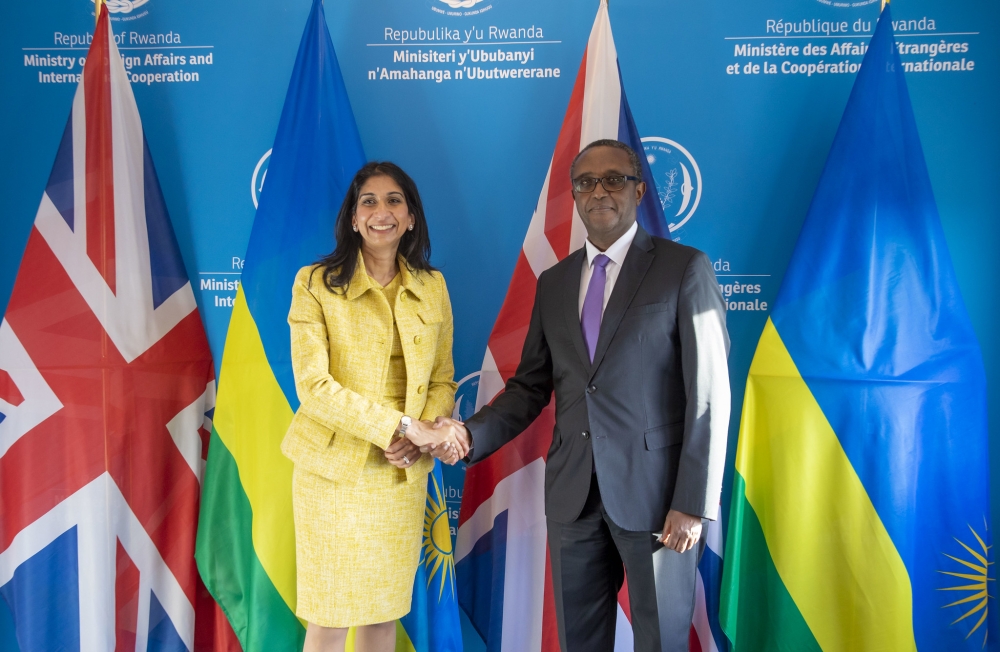

The United Kingdom-Rwanda migrant plan continues to make headlines, mainly opposition to it. It looks like it will stay like that for some time. Even the UK Supreme Court’s ruling that should put the matter to rest (at least in the courts) that the plan is unlawful will not make it disappear. In fact, UK Prime Minister Rishi Sunak has said that his government will table legislation that will make it work.
The reasons why the plan (and criticism of it) will not go away are not difficult to see.
One is that there is a global migration/refugee crisis that needs to be resolved, whichever way that is done. Merely stopping one plan that aims to address it, however inadequate that may be, cannot be the answer.
Two, the conditions that make migration necessary still exist.
Three, there is a growing anti-migrant movement in the rich western countries, which are the preferred destination of asylum seekers whether genuine refugees or economic migrants. They are simply unwanted. To counter this, a vocal pro-migrant lobby wants to keep their issue alive. Which makes for a mighty political quarrel between the two groups.
In many ways, these countries are responsible for increasing migration and should find a solution to it and not demonise those that try.
They paint the asylum seekers’ places of origin as s..thole countries and their own as the shining city on the hill.
They destabilise some of them on the pretext of hunting terrorists, stopping ‘mad’ men supposedly sitting on mountains of weapons of mass destruction from destroying the world or removing leaders they do not like. All areas in which they have failed. Terrorism has in fact increased with their intervention.
Through systematic impoverishment from colonial times to the present, they have ensured that there will always be flight from poorer countries to theirs in search of better livelihoods.
Four, there is no alternative plan to the one declared unlawful by UK courts. None of all the individuals, organisations, and groups opposing it, including the UNHCR for whom that is its primary duty, have proposed a more practical, "humane and lawful” plan to deal with the increasing problem of asylum seekers or to stem migration altogether.
At the moment, the UK-Rwanda plan and several variations of it that other countries have, are the only plans available that appear to address the concerns of all those involved.
For the UK, it relieves some pressure. Yes, there might be selfish political reasons, but it solves a problem, if only partially, for which there are no satisfactory answers yet.
Rwanda, in what is becoming its humanitarian mission, comes to the rescue of fellow human beings in distress, alleviates the problem, and eases the conscience of other people unwilling to take in asylum seekers who are at their gates, but also struggling with the guilt of turning them away. This is perhaps Rwanda’s sin: drawing attention to the cold, inhuman, and even callous behaviour of those with the capacity to help.
For asylum seekers, they find a home, at least for a time, and can then decide where to go next without harassment or danger to their lives.
Yet, in spite of all this, the UK-Rwanda plan has come under attack from the time it was first proposed to the Supreme Court ruling that should have been the final word, but which seems to have spurred the British government to pursue it in some form with even more vigour.
In these attacks, Rwanda has received the most blows, unfairly, of course. It has been maligned for its offer to help fix a global humanitarian problem. Yet those who reject asylum seekers, shut their borders, or keep them in camps in unimaginable conditions do not get as much as a scratch.
To make matters clear, Rwanda did not initiate this plan, and apart from doing the right thing, probably does not have much to gain from it. It can certainly do without the negative attention, vilification, and lies.
Rwanda is only doing it because it is the decent thing to do for people who risk death in crowded, unsafe oats on the high seas, the scorching heat of the desert, or Victorian workhouse conditions in search of a better life.
Why then the attacks on a country doing what everybody else should be doing?
Perhaps it is out of a feeling of shame that a country that the world abandoned to destructive genocidal forces, but defied all odds and predictions of doom and survived is now offering fellow human beings what the world denied it.
In addition, the Rwanda offer is a dent in a facade of compassion that some of these countries have presented for long and over which they think they have monopoly.
Then there are diverse groups and organisations that want to keep asylum seekers where they are as they seek entry into the UK for their own ends. These range from politicians who see political capital in the problem, religious leaders perhaps out of conviction or necessity, and an alliance of other groups in the growing humanitarian industry – charities, civil society, social workers, lawyers, and media - who gain from the continued presence of the migrant problem.
In the end, much more will be needed to solve the asylum seekers problem than throwing mud at Rwanda.


